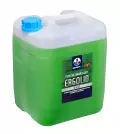resin
Resin is a sticky and viscous liquid found in plants, trees and some types of animals. It contains a mixture of organic compounds that can be in liquid or solid form and can have different compositions depending on the type of source.

Resin is used in various industries for its properties and chemical composition. Some of its main uses include:
Forestry and wood processing industry: Resin is obtained from plants and trees such as pines and firs and can be processed into products such as turpentine, birch oil and resins. These products are used for the production of paints, varnishes, adhesives and other chipboard materials.
Pharmaceutical industry: Turpentine, which is produced from the resin, has many medicinal and therapeutic uses. It is used in pharmaceutical preparations, ointments and other remedies to relieve pain and inflammation.
Production of perfumes and cosmetics: Some types of resin are used to produce aromatic ingredients for perfumes, cosmetics and scented products.
Construction and carpentry: Resin has traditionally been used to impregnate wood and protect wooden structures from rot and insects.
Natural healing: In some cultures, the resin is used for traditional medicinal purposes, such as treating wounds and skin problems.
Resin can be divided into different types depending on its source and use:
Turpentine: Turpentine is a liquid product obtained by distilling resin from various types of trees. It is used in various industries as well as in pharmaceutical and therapeutic applications.
Resin: Resins are viscous and sticky compounds that are made from the resin of trees. They can be solid or semi-solid and are used for adhesives, varnishes, impregnations and other purposes.
Gums: Some types of resin are known as gums, which are viscous and elastic. Gums are used in cosmetics, pharmaceuticals and products such as chewing gum.
Each type of resin has its own characteristics and use depending on the chemical composition and properties of the obtained resources.






















































































































































